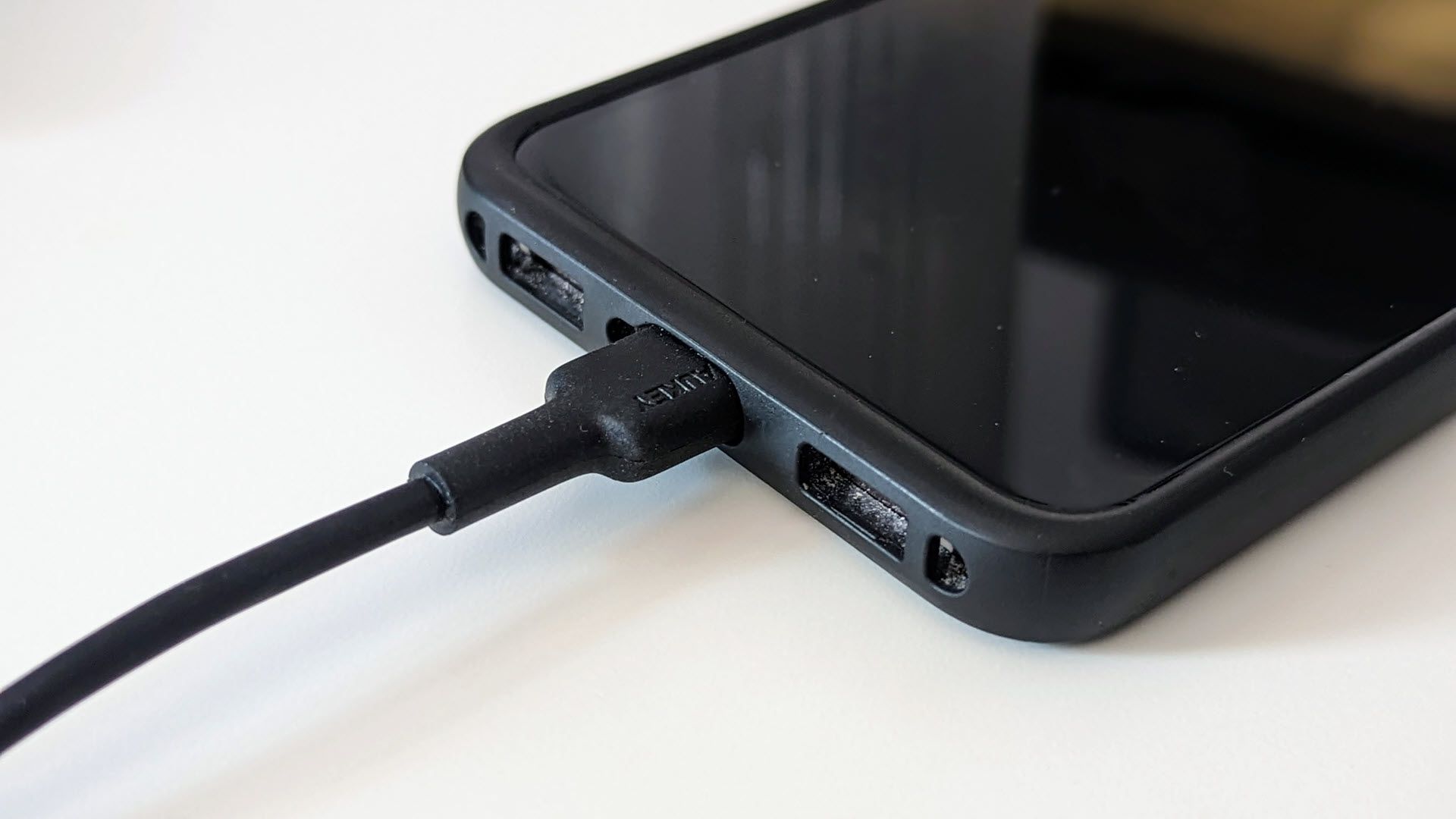Quick Links
Key Takeaways
Your smartphone has many safety features intended to prevent the battery from overheating and combusting. However, batteries degrade over time, and that can be a safety hazard.
People have a lot of questions about batteries. Is it bad to charge your phone overnight? What happens if you keep your phone charging after 100%? Those are valid concerns, but what if you keep your iPhone or Android phone charging all the time?
Many of the concerns and questions about batteries are based on outdated information. It might seem like batteries haven't improved much over the years, but they actually have quite a bit. How does that affect charging practices?
How Does Charging Work?
Let's talk a little about what's actually happening when you charge your phone. Batteries convert chemical energy into electricity. The chemicals inside a battery contain electrons, and when they move, they generate electricity.
When you connect a battery to a power supply, the electrons inside begin to move from the negative electrode to the positive electrode. The chemical potential energy is increased---meaning there's a surplus of electrons---and that surplus of electrons is what charges the battery.
When the battery isn't connected to power, the electrons move in the opposite direction---from positive to negative. The potential energy is now converted into electricity, which is used by the device, therefore discharging the battery.
How Your Phone Protects Itself While Charging
Repeating the cycle outlined above over and over again is what degrades batteries. You may have heard that keeping your phone charged between 20-80% is good for the battery. Going from 0-100% is a long cycle---shorter charge cycles are generally better for the battery.
Your phone actually has built-in protection so you don't have to worry about this stuff. For example, when you charge the phone to 100% it stops charging, but it starts charging again when it drops to 99%. That's a short charging cycle, but it can repeat hundreds of times while the phone is plugged in.
To combat this, the iPhone and many Android devices have "Adaptive" or "Optimized" battery charging features. Rather than letting the battery fully charge and constantly cycle between 99-100%, it will keep the battery around 80% and intelligently finish the last 20% when you typically unplug your phone.
Can I Keep My Phone Plugged in All the Time?
Back to the question at hand---can you keep a phone charging all the time? The short answer is: "probably."
There's no getting around the fact that the battery is the most volatile component in your smartphone---remember the Galaxy Note 7? That disaster was due to a design flaw in the battery that allowed for overheating and combustion. However, hundreds of millions of smartphones have been manufactured over the last couple of decades, and exploding batteries are exceptionally rare.
Adaptive and optimized battery charging are just a couple of the consumer-facing battery-saving features. There are tons of other safety measures under the hood, as well as comprehensive safety checks before the device ever leaves the factory.
Keeping the phone plugged in all the time will absolutely degrade the battery, making it last shorter and shorter on a charge---just like keeping a laptop plugged in all the time. You can see this by checking the battery health on Android and iPhone. However, if the point is to leave the phone plugged in all the time, does battery life really matter?
In theory, it should be fine to keep a phone plugged in all the time, but "all the time" is very open-ended. The more the battery degrades, the higher chance there is for something bad to happen. If you do need to keep a phone plugged in for a long time, make sure you're using the correct charging equipment.
Be careful out there.


